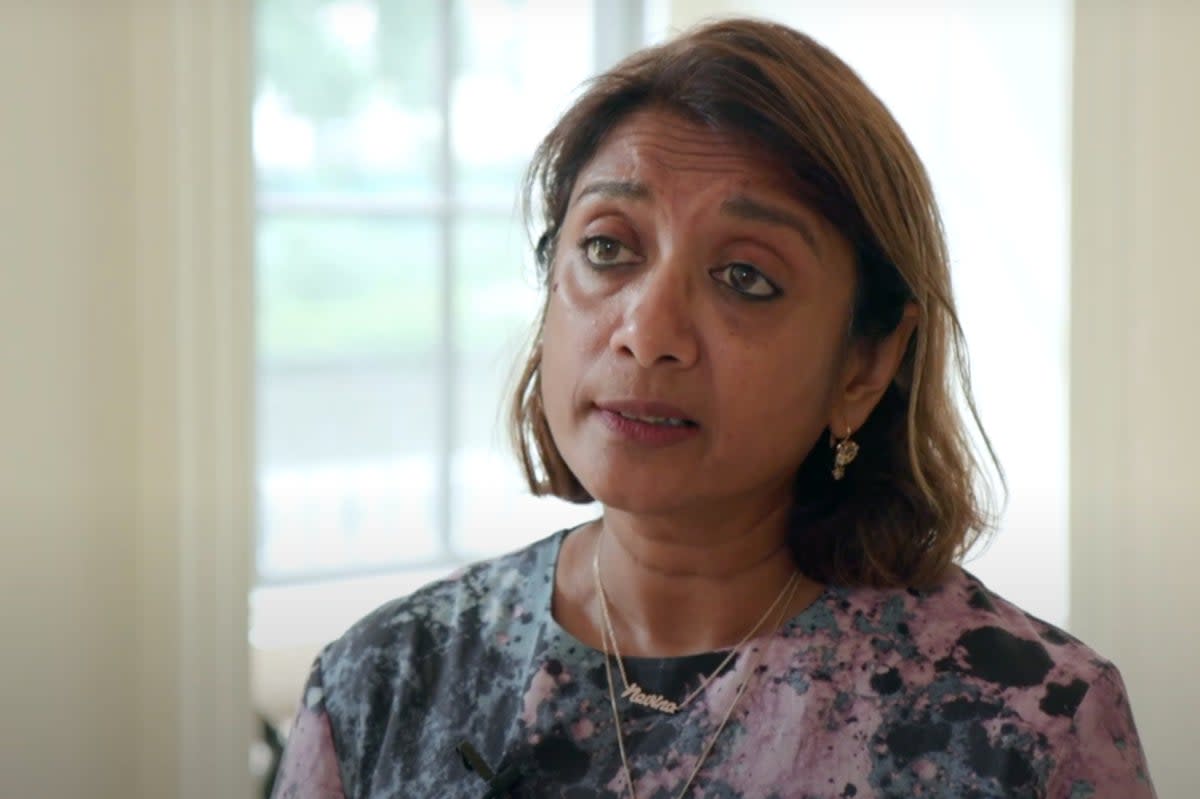Top health chief slams ‘shameful’ level of sexual harassment in the NHS

Sexual harassment levels in the NHS are “shameful”, with incidents happening all the time, one of the country’s top health chiefs has admitted.
Dr Navina Evans, chief workforce officer at NHS England, urged leaders to act on shocking levels of sexual harassment, following exposes by The Independent.
Asked about the one in eight workers who have reported unwanted sexual behaviour, she said: “It is shameful... I could tell you stories from my own experience from when I was a trainee right up to last year.
“It is a significant problem; it is everywhere. I think we have to ask ourselves and be much more aware of what’s going on around us. There are some really practical things that we can do ... Fundamentally, we must change attitudes and behaviour.”
Her words come after NHS chief executive Amanda Pritchard called for healthcare leaders to act on the growing problem and health secretary Victoria Atkins ordered a review into sexual assaults within mental health services.
Their interventions follow a series of stories by The Independent and Sky News exposing thousands of sexual assaults and incidents of harassment in mental health wards run by the NHS.
In March, a shocking report uncovered by this publication also revealed widespread reports of sexual harassment of paramedic trainees.
Last year, the NHS published its “sexual safety charter” which requires organisations to commit to eliminating sexual harassment and assault among staff and patients.
However, not all 240 NHS trusts have signed up to the charter yet, according to Dr Evans.
She said: “It is really important that every organisation signs up.”
The NHS staff survey this year found one in eight workers – around 58,000 – had reported experiencing unwanted sexual behaviour in the last 12 months, while one in 26 reported experiencing similar harassment from a work colleague.
Writing in The Independent in April, Ms Pritchard said the NHS must not be exempt from the #MeToo movement.
She said NHS England would be benchmarking all providers on their progress against sexual harassment levels measured in the staff survey.
In one of the worst examples of the abuse faced by staff, a mental health nurse said she was raped by a patient. Last year, The Independent revealed the story of a paramedic who said she had been groped by one colleague and dry-humped by another before being locked in an ambulance and sexually assaulted.
In the 2024-25 NHS planning guidance, which directs trusts on their targets and priorities for the year, trusts were told they must commit to the 10 actions in the service’s sexual safety charter.
These include a commitment to take all reports of harassment seriously, work to eradicate it and clearly communicate to staff acceptable standards of behaviour.


